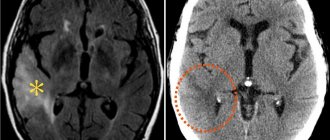Weekly results of hCG analysis in pregnant women
Since hCG analysis is most often carried out in women who are carrying a fetus, it is better to start with this diagnostic method. A fertilized embryo, in the process of attachment to the endometrium and development in the uterine wall, releases large doses of the corresponding hormone. Then the protein is synthesized by the placenta.
HCG of 1-5 weeks demonstrates the highest growth activity in the body until 11-12, after which it gradually decreases. b-hCG is determined in the blood using special methods and chemical reactions; the total concentration of this hormone is the sum of both of its fractions. The beta subunit is unique and has characteristic effects on the body. Therefore, it is easier to find in biological material.
The table below shows the increase in hormone levels each week of pregnancy. The decoding of hCG is usually carried out by a doctor, but often expectant mothers independently learn to distinguish the corresponding meanings:
| Gestation period, weeks | HCG value, mIU/ml |
| Non-pregnant woman | 0 — 5 |
| Questionable result | 5 — 25 |
| 3-4 | 25 — 156 |
| 4-5 | 101 — 4870 |
| 5-6 | 1110 — 31500 |
| 6-7 | 2560 — 82300 |
| 7-8 | 23100 — 151000 |
| 8-9 | 27300 — 233000 |
| 9-13 | 20900 — 291000 |
| 13-18 | 6140 — 103000 |
| 18-23 | 4720 — 80100 |
| 23-41 | 2700 — 78100 |
The hCG test, or rather its results, can sometimes differ. Much depends on the capabilities and method of its determination in a particular laboratory. So, for example, in the table above you can see specific units of measurement of protein in the blood. Sometimes another indicator is found - IU/l. They can replace each other. 1 mIU/ml = 1 IU/l.
There are situations when, due to certain peculiarities of the work of a particular laboratory, you need to wait longer than usual for test results. This may be due to the workload of the institution itself or a lack of reagents. In any case, the average duration for obtaining final data is 24 hours.
https://youtube.com/watch?v=Tvl3dzY6oF8
It is also worth noting that the first pregnancy test taken is not always reliable. Due to the individual characteristics of a woman’s body, or errors in the work of medical personnel, sometimes it is necessary to undergo appropriate diagnostics not once, but two or three times. If the second test gives an incorrect result, then you should change the laboratory.
An important feature of the increase in the amount of the hormone in the body of a pregnant woman is that hCG begins to actively increase at 1 or 2 weeks of gestation. Up to week 5, it doubles every 36 hours, which is shown in the table above
If this does not happen, then the doctor has the right to suspect some kind of pathology.
What is hCG measured in?
Standard units of measurement for hCG are honey/ml. However, different laboratory departments may use their own units, different from those presented.
Therefore, when interpreting the results obtained and comparing them with the norm, primary attention should be paid to the units of measurement
The level of the hormone depends on the week of pregnancy of the patient.
To determine the concentration of the laboratory criterion in question, as well as its isoforms, an enzyme-linked immunosorbent technique is used. It is based on a specific reaction between an antigen and an antibody. Advantages of the method: the ability to determine extremely low concentrations of substances, affordable cost and fast turnaround time.
In public clinics, the turnaround time depends on the workload of the laboratory. The waiting time for analysis results in a private laboratory is 1 day. However, most private laboratory departments provide rapid testing services that allow you to find out accurate results 1-2 hours after collecting biomaterial.
Interpretation of analyzes
Diagnosis of pregnancy, fetal malformations, or the occurrence of various complications in the process of bearing a baby is not the only direction in which the hormone is used. It has proven to be a good tumor marker for identifying malignant neoplasms with active endocrine function or embryonic origin.
However, donating blood for testing is not enough. How to decipher the analysis? This is the question that interests most people, patients or pregnant women who, for one reason or another, undergo appropriate laboratory diagnostics.
It all depends on the purpose for which the diagnosis was carried out. If the study data is deciphered as part of determining the presence of pregnancy, then they will not coincide with the norms for similar testing for the development of cancer. In any case, the patient's interest in human chorionic gonadotropin should be supported by a qualified assessment by a physician.
Can doctors make mistakes in interpreting the result?
They are unlikely to make mistakes in the transcripts themselves, but the fact of misinterpretation of the resulting analysis may be present. This happens due to the same pregnancy, which is why doctors prescribe hCG testing. That is, this analysis is prescribed in most cases to women who have reasons that prevent the desired pregnancy from occurring. And when, nevertheless, the desired positive result confirming pregnancy appears in the hands of a doctor, most often the increased concentration of hCG detected in the blood does not even cause any other associations.
After all, an increase in the concentration of the hormone can be caused either by pregnancy or by the development of a number of diseases, including polycystic ovary syndrome.
It is worth knowing that a positive test does not always indicate the correct course of pregnancy, especially if when you donate blood again for hCG a week later, the level of the detected hormone concentration does not undergo a further increase. This may mean either the development of an ectopic pregnancy or its fading.
Sometimes an increased concentration of hCG may indicate not the presence of pregnancy, but a developing tumor. It is according to this analysis that tumors of various types are most often detected in men.
Donate blood for testing
7-10 days after fertilization of the egg, the amount of the hormone in the blood increases by no more than 5 units. An accurately established day on which conception could have occurred will allow you to confidently perform an analysis two weeks later. The opposite situation indicates the need to reschedule the test 21 days after the end of menstruation. There are times when it has to be repeated after a few days.
After conception occurs, the level of the hormone in a woman’s body will increase all the time. If pregnancy does not occur, then the opposite picture is observed - a decrease in hormone levels.
List of drugs that can affect hCG levels
Can the hCG test be erroneous when taking medications? Yes maybe. List of drugs that increase the concentration of the hormone in the blood (containing human chorionic gonadotropin):
- Decayed;
- Horagon;
- Gonakor;
- Profasi;
- Chorionic gonadotropin.
List of drugs that reduce the concentration of the hormone in the urine (diuretics):
- Diacarb;
- Furosemide;
- Veroshpiron;
- others, including herbal preparations.
As for taking gestagens (Duphaston, Progesterone, Utrozhestan), doctors have not identified a direct effect on human chorionic gonadotropin. These drugs cannot cause false hCG levels during early pregnancy. Also, diet, unbalanced nutrition, smoking, and alcohol do not affect the hormone content.
Interpretation of analysis results
As promised above, I present to your attention the normal hCG values relative to the timing of pregnancy. Normally, an increase is observed in the first 11-12 weeks of pregnancy. After this period, the level of the hormone in the blood of a pregnant woman begins to gradually decrease.
HCG is normal in different weeks of pregnancy. Please note that the counting of weeks of pregnancy is not carried out from the moment of ovulation or conception, but from the first day of the last menstruation!
Also, do not forget that the above are not absolute normal values, and hCG values may vary slightly among different women. In this case, it is much more important to take into account not the level of hCG at a particular point in time, but its change in dynamics compared to the previous result. When receiving results from a laboratory, always ask workers to give you the reference values for that institution, since the norms for hCG may vary slightly from one laboratory to another.
What is hCG during pregnancy?
Normally, hCG in the blood begins to increase after the fertilized egg attaches to the mucous membrane of the uterine wall. The hormone is a gonadotropin. Its main role is to regulate the normal functioning of the sex glands. If in women it increases during pregnancy and is a sign of its normal course, then its detection in men is a sign of cancer.
The biological role of the hormone is to maintain the stability of the corpus luteum for 10-12 weeks. It should be noted that the lifespan of the corpus luteum after formation outside of pregnancy does not exceed 2 weeks. After 10-12 weeks, the placenta begins to independently synthesize estrogen and progesterone. The level of progesterone produced by the corpus luteum is significantly higher than in non-pregnant girls.
The function of hCG is known to enhance the secretory function of glucocorticoids in the adrenal cortex. Their increase allows the woman’s body to adapt to bearing a child. In addition, glucocorticoids exhibit immunosuppressive properties, which somewhat suppress women's immunity. This is necessary so that the protective systems of the expectant mother do not reject half the foreign genetic material that is the developing baby.
Thus, without a normal level of hCG, the normal functioning and development of the placenta, and therefore pregnancy in general, is impossible.
Can an HCG test be wrong?
List of messages in the topic “Can an HCG analysis be wrong” forum I want a child > I want a child
What is this? Do the tests lie?
Those. with classical implantation on days 7-10 of DPO, by the time the expected onset of menstruation, the hCG level may already be quite impressive.
All rights to materials posted on the site are protected by copyright and related rights legislation and cannot be reproduced or used in any way without the written permission of the copyright holder and placing an active link to the main page of the Eva.Ru portal (www.eva.ru) next to with the materials used.
The editors are not responsible for the content of advertising materials. Certificate of registration of mass media El No. FS77-36354 dated May 22, 2009 v.3.4.168
What about IVF?
Even thirty or forty years ago, the so-called “test tube babies” seemed to many to be some kind of fantastic creatures. But today there are several million people living on the planet who exist precisely thanks to IVF. When using this method, fertilization itself occurs outside the female body, as would be the case with standard, natural conception, but in the external environment, that is, outside it.
This is perhaps the last chance for families who have severe forms of infertility and, even with a great desire, are not able to become parents in the usual way. If previously the spouses had to come to terms with this pain or take the baby from the orphanage, now a loving couple has a real opportunity to give birth and raise their own child.
Of course, the IVF procedure cannot give a 100% guarantee of the expected pregnancy, but it is a real chance for a happy ending.
Women who can't get pregnant the normal way and need to resort to the in vitro fertilization option often worry about whether hCG might be wrong after IVF. After all, in this case, everything happens not quite as usual, not as usual. That’s why potential mothers are tormented by the question: did everything go smoothly, did everything work out as desired?
Every one and a half to three days the level of gonadotropin will increase after in vitro fertilization. To determine its norm, doctors use both standard, ordinary tables, and special ones, taking into account the age of the small embryo and the day on which it was implanted.
The first time a test for gonadotropin levels is carried out, as a rule, on the fourteenth day after fertilization. If the value is 100 mU/ml, then everything went well and pregnancy has occurred. If this indicator is below 25 mU/ml, this will be a hint that, unfortunately, conception has not occurred.
What can we say in conclusion? In trying to answer the question about the possible error of a blood test, we found that there are many factors that affect the reliability of a laboratory test. It all starts with the correct preparation of the woman for the collection of the necessary material and ends with the potential of the laboratory that has been selected, the level of qualifications of the doctor and laboratory assistant
The patient’s medical history is also important: that is, whether she recently had a miscarriage, when the woman ovulated, whether she takes any medications, etc. It is necessary to come for a consultation with the attending doctor, who will correctly interpret the result of the test; if the need arises, do it again; undergo additional research if necessary
How long can a test not show pregnancy?
Many women force things and rush to check hCG even before the delay. But the result often does not bring peace of mind, but makes you worry even more. In order not to worry about a possible error in the end, you should adhere to the deadlines specified by doctors and conduct testing 3-5 days after the delay. In case of irregular menstruation, it is recommended to take the test 12-15 days after ovulation.
So, can the hCG blood test be wrong? The reliability of a laboratory test depends on many factors, ranging from the correct preparation of the woman for the collection of material, ending with the potential of the chosen laboratory, the level of qualifications of the laboratory assistant and doctor. In addition, the patient’s medical history is important: whether she is taking medications, whether she had a recent miscarriage, when ovulation occurred, and much more. You should contact your doctor and correctly interpret the test result, repeat it if necessary, and undergo additional tests.
How accurate are analyzers?
Tests that check hCG levels differ in their design, but their operating principle is the same. To start the reaction, you need to combine the reagent with a small amount of urine. When it is necessary to obtain reliable information in the early stages, the analysis is best carried out in the morning. The first portion of urine contains the largest amount of the hormone human chorionic gonadotropin.
There are different types of devices used for self-analysis at home. Some of them need to be placed under the stream. There are tablet tests that require one drop of urine to be applied to the analyzer. In some cases, the strip is dipped into a container with urine and the result is seen after a few minutes.
All of these types of devices used for home pregnancy diagnosis are subject to errors, as each manufacturer warns. The test strip may show a negative result if it is not used correctly. A woman conducting research at home must do everything according to the instructions that the manufacturer attached to her product. Otherwise the testing will be incorrect.
The incorrect result is independent of the device type. The reason must be sought:
- in the physiological characteristics of the body;
- low-quality reagents;
- violation of operating rules;
- incorrect reading of the result.
Disposable test strips are more likely to give incorrect results than others because a small percentage of poorly made products enter the pharmaceutical market.
Electronic tests for determining hCG in urine can also be wrong. These modern devices operate on the same principle as other analyzers. Before diagnostics, an absorbent strip is inserted inside. The monitor starts working when urine comes in contact with the reagent. An electronic test that checks the level of hCG in the body is considered a very accurate and sensitive device, but it also makes errors in 1 case out of 100. The devices can provide mutually exclusive information. So, if the result is negative, a number appears on the screen indicating how many weeks the fetus is.
Due to the fact that analyzers treated with the reagent have to be constantly replaced, there is a risk of obtaining a false result. The manufacturer claims that the electronic device can be trusted, but it should be remembered that the active substance may expire, or the reagent may be of initially low quality. Then the testing device will show a false result. These reasons often lead to incorrect display of summary information on the screen. When developing symptoms of pregnancy and a negative test, you should always suspect a low-quality reagent.
Can hCG make mistakes in early pregnancy?
Yes, the test results may show a false negative result. Such an error is possible if the woman donated biomaterial (blood, urine) for analysis too early, when less than 5 days have passed since conception. In this case, a false negative hCG test result is obtained.
In order to accurately select normal values for each patient, it is necessary to know the gestational age, accurate to the nearest week. However, an isolated study on the value of human chorionic gonadotropin is not enough to definitively establish the fact of pregnancy. An additional ultrasound examination should be performed.
If the possibility of pregnancy is clearly excluded, a comprehensive diagnosis is urgently carried out. Since there is a high probability of developing a malignant tumor in the body, which is the source of hormone-like substances.
Exceptional cases should be highlighted separately. According to statistics, approximately 2% of women have high levels of analysis for human chorionic gonadotropin. The reason for such false-positive data most likely lies in a violation of the patient’s hormonal status or oncopathology.
Situations cannot be excluded when pregnant women have a negative result for hCG. The phenomenon is explained by late implantation of the embryo or ectopic pregnancy.
Proper preparation for analysis
In order to reduce the risk of erroneous results, attention should be paid to the preparation rules. Biomaterial is handed over from 8 to 10.00 am, 8-12 hours after the last meal. Biomaterial collected from the patient 4 hours after taking a light snack can be accepted for analysis.
The liquid can be consumed in unlimited quantities before taking biomaterial. It is important that it is not sweet and without gas. This will help make it easier to perform venipuncture and collect enough blood for testing.
You will have to give up sports training 1 day before visiting the laboratory department for the purpose of hormonal diagnostics. Because physical activity, along with emotional stress, stimulates the activity of the glands of the endocrine system. This may result in unreliable results. For the same reason, alcohol and smoking are not allowed 3 hours before taking biomaterial.
Two days before the test you should avoid drinking alcohol.
Read further: How to properly donate blood for sugar from a finger and vein, how to prepare for donation
Little about analysis
The hCG test is a blood test for hormones, since hCG is nothing more than the hormone human chorionic gonadotropin, produced in the woman’s body after the embryo has attached to the wall of the uterus.
In non-pregnant women, the concentration in the blood of this hormone is not enormous and forms a maximum of 5 mU/ml. By the way, the same insignificant amount of hCG is also observed in the male body, being a consequence of the work of the pituitary gland. And with the onset of pregnancy, the level of hCG in the woman’s blood first begins to increase exponentially, and upon reaching the equator of pregnancy, it decreases and settles at the same level, not changing any more until the baby is born. It increases almost immediately after fertilization of the egg is completed. If it is not possible to establish the correct date of conception, it is recommended to take a blood test 3-4 weeks after the end of the last menstruation (in most cases, this is a 4-5 day delay).
There are no special rules necessary for proper preparation for the test. It is enough to come to the laboratory in the morning on an empty stomach and donate blood from a vein. Along with this, if a potential pregnant woman is taking any specific medications, then it is imperative to notify the doctor about this, since certain drugs can distort the accuracy of the hCG blood test. Under such conditions, it may be that there will be little delay in carrying out the study.
Many ladies tend to believe that hCG can be wrong. This is ultimately true. Despite the fact that the possibility for the phenomenon to occur is virtually zero, an annoying error is still possible. Along with this, it is customary to distinguish two types of errors in the analysis of the hormone human chorionic gonadotropin: false negative analysis and false positive hCG analysis.
Human chorionic gonadotropin is of great importance for the proper course and development of pregnancy, since it blocks menstruation and activates the production of hormones required to maintain pregnancy.
A false negative test occurs when it is established that pregnancy has not occurred when it is present. The main reason for obtaining results is through performing the analysis too early. In addition, a false negative test can occur with late implantation of the embryo, late ovulation, ectopic pregnancy, or a disturbance in the rate of production of the hCG hormone in the woman’s blood. In such a situation, it is advisable to conduct a similar analysis after a couple of weeks and conduct an ultrasound examination of the pelvic organs.
It is best to take a repeat test in the same place as the first one. If the woman is actually pregnant, then the concentration of hCG in her blood after a few weeks will be twice as high as the values obtained during the first analysis. If there is no pregnancy, the hCG level will decrease or remain in the past.
False-positive hCG is diagnosed when there is really no pregnancy, but the test results indicate the opposite. Under such conditions, the expert should refer the woman for additional examinations, including an analysis of the concentration of hCG in the urine and a CT scan of the pelvic organs.
There are different circumstances for obtaining a false-positive hCG test, the most common of which are:
· The presence in the blood of certain substances that are similar in composition to hCG;
· The presence of diseases that contribute to an increase in the level of the hCG hormone (tumors, diseases of the endocrine system or ovaries, for example);
· Taking medications that contain the hCG hormone (in most cases, these are drugs aimed at treating infertility and stimulating ovulation - Ovitrel, Profazi, Pregnil);
·Increased production of the hormone hCG by the pituitary gland of a woman;
· Miscarriage, abortion or childbirth that occurred less than 1 month ago.
The hCG hormone contains beta and alpha subunits. Along with this, unlike the alpha subunits, which are similar to other human hormones, the beta subunit is unique in its kind, and it is with its help that the fact of pregnancy is confirmed or denied.
Despite the fact that hCG can make mistakes, this method of studying is considered the most correct of all those known to science. Based on this, when planning a pregnancy, you should not neglect this analysis, since it will allow you to determine the good news about motherhood much earlier and prevent multiple troubles in the development of pregnancy.
How to prepare for the test?
The veracity of the results directly depends on proper preparation. The gynecologist must tell you about it in detail, but there are general recommendations that should be followed.
The hCG test is usually taken in the morning; you should not have breakfast beforehand. If it is not possible to donate in the morning, you can come to the laboratory at lunchtime, but the last meal should be no earlier than five hours before taking blood from a vein. Before receiving a referral for analysis, it is imperative to warn your doctor about all medications you are taking, especially hormonal medications, as well as about existing diseases and abnormalities in the body, since this can significantly affect the results. Before taking the test, you must give up alcohol and smoking, physical activity and sexual intercourse.
Typically, the laboratory quickly processes analysis results; they can be obtained within a few hours, and the maximum period is a couple of days. Your doctor will help you decipher them.
It is important to remember that the level of hCG during pregnancy is purely individual; the main thing is to monitor the dynamics of changes in the concentration of the hormone
Incorrect negative hCG test
When a woman suspects pregnancy, the first thing she does is take a home test and also donate blood. Imagine her surprise when she discovers that with a positive test, hCG is negative. How to understand which result is more truthful? Can HCG make mistakes?
The main reason for a negative test result in the actual presence of pregnancy is too early blood donation, that is, if you come to the antenatal clinic on the first or second day of a missed period, the laboratory analysis is not able to show any dynamics of the hCG level, since at this time the fertilized egg has not yet attached to the uterus and has not begun to promote the release of the hormone.
In addition to this reason, a false negative result can occur if:
- Ovulation occurred much later than it should have;
- The embryo implanted into the uterine wall too late;
- Pregnancy is ectopic;
- For various reasons, the hormonal background and the rate of hCG synthesis have changed;
- There is no pregnancy at all.
If such discrepancies occur between the test strip and the analysis result, it is necessary first of all to do an ultrasound examination of the pelvic organs in order to exclude anomalies and the onset of an ectopic pregnancy, which requires immediate removal, otherwise the embryo will rupture the fallopian tube as it grows, which threatens complications and even death from heavy bleeding. If this diagnosis has not been confirmed, but a negative result was still obtained, then it is worth donating blood from a vein again after a week or two.
Blood analysis
A woman who suspects she is pregnant first of all buys a test that is used at home. It reacts to an increased level of hCG in the blood, which is the cause of the second line on the test. But the result of such a test may be incorrect if the woman used the pregnancy test too early or it turned out to be defective. That is why, if menstruation is delayed, it is necessary to donate blood as soon as possible.
A blood test for hCG is more accurate - in 99% it shows the correct result, and the remaining percentage falls on various pathologies and hormonal disorders. A special advantage of this method is that an increase in hCG levels is detected at the earliest stages, when conception cannot yet be determined using a test strip.
In addition to determining pregnancy, hCG analysis is used as a means to determine frozen pregnancy, and to identify developmental pathologies in the fetus from 14 to 18 weeks, a triple test is used: for hCG, estriol and alpha-fetoprotein. In this way, anomalies in the development of internal organs are detected, as well as Down, Edwards and Shereshevsky-Turner syndromes.
Weekly HCG transcript
The hormone level after conception will increase until almost 13 weeks. After this period, hCG will begin to gradually decrease. The decoding will show that its level when donating blood should have such indicators.
| Gestation period from conception | min. value, mIU/ml | Max. value, mIU/ml |
| III | 3,8 | 51 |
| IV | 3,9 | 429 |
| V | 19 | 8540 |
| VI | 1,09 | 56,40 |
| VII-VIII | 7,540 | 230,000 |
| IX-XII | 24,600 | 279,000 |
| XIII-XVI | 13,200 | 252,000 |
| XVII-XXIV | 4,050 | 175,300 |
| XXV-XL | 3,700 | 119,00 |
It should be understood that these indicators are not absolute and accurate. The hCG level during pregnancy may deviate slightly from the norm, and this does not mean at all that there are any abnormalities or pathological changes in the fetus.
Pregnancy indicator and protector
HCG allows the corpus luteum, which produces progesterone, which contributes to normal pregnancy, not to dissolve until the placenta is capable of independently producing hormones at the beginning of the second trimester.
In addition to stimulating the production of progesterone in huge quantities, hCG acts as a natural antidepressant, helping the expectant mother cope with global changes in the body, and also blocks uterine contractions, which can cause miscarriage in the early stages. It is thanks to him that the expectant mother’s body does not perceive the embryo as a foreign body that needs to be gotten rid of.
Normally, it is found even in men, since its production is promoted by the pituitary gland, but in a very small amount, less than 5 mU/ml. This figure is also normal for non-pregnant women. When menopause occurs, the average concentration of hCG rises to 9 mU/ml; in those who are expecting a child, the level of the hormone grows exponentially, slowing down only closer to the middle of the term.
How does hCG normally rise?
Before you figure out whether hCG can be wrong for pregnancy, you should understand: if the pregnancy develops absolutely correctly, as it should be, then the level of gonadotropin will constantly “grow” until the tenth or twelfth week. Then it starts to decline. This has already been mentioned a little higher.
The change in hormone levels in each expectant mother occurs completely differently, so you should not rely on any established norms for its growth. Still, in most cases, gonadotropin levels double on average every one to three days by the fourth week, and later every three and a half days by the ninth week. It is considered absolutely normal that hCG falls after the tenth to twelfth week.
If there is no increase or decrease in hCG levels, the woman should immediately contact her gynecologist, because this may be evidence of a miscarriage or that the pregnancy has stalled.
If a reverse reaction is observed, that is, the level increases quite quickly, then you should also go to an appointment with a gynecologist, because this is the only way to eliminate some complications, for example, hydatidiform mole.
Other reasons for a negative result
Separately, hereditary pathologies
and fetal deformities are noted. In this case, the body naturally tries to reject the non-viable egg, according to the laws of natural selection.
The pregnancy that has begun will proceed in the “threat of miscarriage” mode; hCG will be released in small quantities and will not allow the embryo to protect itself from an attack by the mother’s immune system.
This question is still controversial: is it necessary to maintain pregnancy in the earliest stages, or should the body allow the body to reject an unhealthy fertilized cell?
ATTENTION! In any case, this situation occurs in the earliest stages (from 2 to 4 weeks) and most often the miscarriage occurs unnoticed, with the onset of the expected menstruation
False positive result
This includes the situation when there is no pregnancy, and the hormone level exceeds 5 mU/ml. Reasons why the test is positive:
- HCG can be produced in the body during a hydatidiform mole, when after conception the embryo does not develop normally and the chorionic villi grow in the form of blisters (from 1 case in 100 pregnancies to 1 in 5000). In 15-20% of cases it transforms into a malignant tumor;
- taking chorionic gonadotropin drugs. Used to treat infertility, restore the menstrual cycle;
- postmenopause. For physiological reasons, the level of hCG after menopause can reach 14 - 15 IU/l. There are often cases when, when passing a pharmacy test (sensitivity 10 IU/l), women appear 2 stripes, although there is no pregnancy and cannot be;
- diseases: ulcerative formation of the stomach and duodenum, inflammation of the gastrointestinal tract, some liver diseases, tumors of internal organs, cancer of the lungs, stomach or pancreas. At a level of 1000 mU/ml, the prognosis for the patient is positive;
Other reasons for increased hCG besides pregnancy:
- biochemical pregnancy;
- recent abortion;
- miscarriage.
Sometimes a sperm successfully fertilizes an egg and the fertilized egg even manages to attach to the walls of the uterus, but the time for menstruation comes and the pregnancy is terminated. In this case, a woman may not feel its signs, not pay attention to heavier menstrual flow, or a slight delay. It turns out that there is no longer pregnancy, but the hCG level is increased. After an abortion or miscarriage, the concentration of the hormone decreases within 4-6 weeks.
Also, the possibility of pregnancy cannot be completely ruled out. A laboratory hCG test can show an interesting situation at the earliest stages, when neither test strips nor some ultrasound machines can confirm it.











